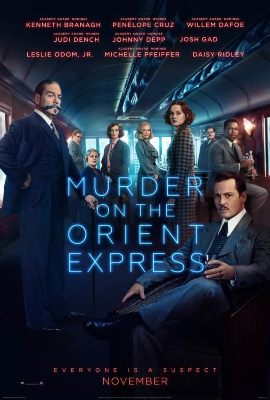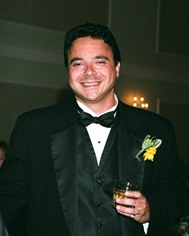 Those unfamiliar with Agatha Christie’s classic whodunit will be treated to a muddled mess with Kenneth Branagh’s “Murder on the Orient Express”- a verbose and grandiose adaptation that will leave audiences guessing long after the mystery’s solved.
Those unfamiliar with Agatha Christie’s classic whodunit will be treated to a muddled mess with Kenneth Branagh’s “Murder on the Orient Express”- a verbose and grandiose adaptation that will leave audiences guessing long after the mystery’s solved.
“Orient Express” begins with Christie’s famed and fussy Belgian sleuth Hercule Poirot (Branagh) using his keen powers of observation to recover a missing religious relic in Jerusalem and having his plans for a restful holiday dashed when he is called to London to solve another mystery. A chance meeting with Broc (Tom Bateman), an old friend who runs a rail line, assures Poirot speedy passage back via the Orient Express and, though the train is oddly overbooked, Poirot is secured a berth rooming with a man named MacQueen (Josh Gad). Poirot is clearly an unexpected and unwelcome cabin mate for MacQueen, who serves as assistant to an impatient and unscrupulous American businessman named Edward Ratchett (Johnny Depp). Ratchett, whose shady dealings have robbed the mob, has also been receiving postal death threats and, upon learning Poirot’s on board, tries to enlist Poirot’s services to detect the source of his poison pen letters. Poirot refuses Ratchett’s offer of employment and finds the threat to Ratchett’s life a very real one- Ratchett is soon found dead, stabbed overnight in his bed.
When the Orient Express becomes snowbound crossing through a passage in the mountains, Broc pleads for Poirot to solve Ratchett’s murder before the locals dig them out: in a time when ethnicity or the color of one’s skin is proof of guilt, Broc wants to protect his passengers. With a small group of suspects to investigate and the clock ticking, Poirot must use his powers of deduction to discover if the murderer is someone who snuck aboard and fled (as clues begin to indicate) or if the train cars conceal the cleverest of killers.
Christie’s mysteries are clever and “Express” is infamous for its famous twist ending, so why is Branaugh’s take on the timeless thriller so unthrilling? Even I, knowing the intricacies of the story (thanks to seeing Sidney Lumet’s far-superior and clearer 1974 film version), had trouble following this movie: the connections between the crime and characters become increasingly hard to comprehend in a ‘way-too-wordy’ script from Michael Green (“Green Lantern,” “Logan”) that has Poirot reveal his reasoning by giving major plot points and important information in a rushed, semi coherent mumble-jumble of phrases: imagine trying to put together a 1,000 piece jigsaw puzzle after the pieces are thrown at you; that’s pretty much how it feels. Also, afraid of making scenes too claustrophobic aboard the small confines of the train, director Branagh films some shots above the actors reducing “talking heads” to the ‘tops’ of “talking heads” and stages additional interrogation scenes outside the train to add some breathing room, a gimmick that runs as thin as the supposedly subzero air the actors are blithely unaware of breathing amidst a backdrop of gorgeous mountain vistas that are obviously part of a studio soundstage.
Sure, the stars are out (with a cast that includes Oscar-winners Judi Dench and Penelope Cruz and Oscar-losers Michelle Pfeiffer and Willem DaFoe) but the actors are never given any substantial characters to work with and, in a film where anyone could be the murderer, not every character gets their equal shot of screen time to seem a plausible suspect. The real problem, though, is the movie’s failure to recognize who the star of the film really is- it’s Agatha Christie’s story. Without paying special care to give clarity to the clues or allow its audience time to absorb information, the atmosphere Branagh creates is one where connections get confusing and our focus gets fuzzy.
While I applaud Branagh’s intention to bring Christie’s mysteries back for the enjoyment of a new generation, this initial outing is a one-handed clap. Given all the literary steam in “Orient Express’” engine, Branagh derails his film by shoveling too much coal into an already finely-crafted conundrum.
